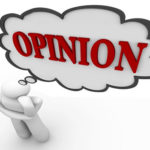There can be no cavil with the significance of the submissions by Farooq Kparogi, which he considers as needed to bring about the desired unity, harmony and peaceful coexistence that is sine qua non for meaningful socio-economic development of Nigeria. This is because a diverse country as Nigeria, tends to be fissiparous and constantly pulled in different directions by centrifugal forces.
It is against this backdrop, that Nigeria has instituted many policies like quota system of admissions, and federal character in distribution of access to national employment, projects and major contracts, for the expressed purpose of promoting sense of belonging in the polity. This comes with inclusiveness of the diverse people in the belief that it is very possible to make the most of our God given diversity, thereby ensuring that every segment of the nation is given a true sense of belonging.
Similar countries have also attempted to introduce policies with the objective of nation binding. For example, Ethiopia, which has never been colonised, practises ethnic-based federalism, yet it has prevalent challenges of nation building. Somalia, a country with only a few ethnic groups and predominantly singular faith, yet faces the challenges of nation building. Lebanon, on the other hand, has policies for balance of its religious diversity. Where the Christians produce the president, the Sunni would produce the Prime Minister, and the Shi’ite would produce the speaker. Yet, they have governance challenges. All these go to show that, the tasks of nation building, go beyond mere balancing of public offices as an end in itself.
All these are also a testimony to the fact that, though politics goes beyond ideals, it also includes who gets what, how and when, because it is driven by group interest, group goal, group coherence, group cohesion and even group conspiracy. Good governance is an art of balancing competing demands amongst not only constituents but also among socio-economic sectors; and what unites a nation, as they constitute national ideals and shared values.
The end of the civil war ushered a no victor, no vanquished pedestal, and gave birth to the 3Rs of Rehabilitation, Reconstruction and Reintegration, aimed at inclusiveness of the Igbos into the Nigeria National Unity. Since then, there have been consciously directed efforts to make the 3Rs more achievable. In fact, both the military and democratic governments have given Igbos fair representations in the Federal government and it’s agencies, such as vice president, senate presidents, speakers, Secretary to the Government of the Federation, coordinating ministers, service chiefs, Central Bank Governors and chairman of the ruling party. What unite a country should be national ideals and shared values.
This solid integration of the Igbos into the Nigeria affairs had enabled them to settle unperturbed in various parts of the country, giving them the unlimited latitude to pursue their business activities, which currently run into substantial net-worth’s thereby enabling them to enjoy near total monopoly of the area more than any other ethnic group in the country. It is the citizenship that gave the privilege to occupy that dominant position. What unite a country should be national ideals and shared values. Similarly, there are projects situated by the Federal Government of Nigeria (in pursuance of policy of reconstruction) in Igbo land (particularly the construction of the second Niger Bridge) to amplify and demonstrate government’s concern for the South Eastern Region.
Conversely, when the Igbos threaten to leave Nigeria, if an Igbo president does not emerge in 2023; one wonders the wisdom and the basis of this agitation without facts and figures to justify the intuition.
Igbos, like any other Nigerians, are entitled to contest for the office of the president of the nation under the current multiparty democracy. To that end, they are expected to devise their winning game plans and use that to convince the Nigerian Electorate to vote for one of their own.
The constitution stipulates that a presidential candidate must meet two important requirements to win majority and spread of votes by securing at least 25% of the votes in each of at least two-thirds of the states; currently 24 states of Nigeria. This is true and balanced democracy. As neither the North nor South of the country have 24 states, the intent of the provisions is to compel the nation to come together to elect the president for the whole country, in order to promote the needed unity.
But when Igbos insist to produce the president in 2023 through affirmative action (ie the use of threats, of leaving the union) and not through the constitutionally laid democratic process; we begin to wonder if that would not amount to playing Denegeld’s theory of rewarding bad behaviour, that comes from threats and intimidation, which brings about the avoidable mistrust.
Igbos should design their game plans and canvass for the needed electoral mandate by taking advantage of the multiparty democracy. This is because democracy is contest of ideas and reasons. It is never bull fight or victim playing, and in doing so, not regard 2023 as the final hour.
Those who seek to redefine democracy, which is premised on the triple foundation of Justice, Liberty and Common Decency, may as well end up reinventing the wheel or redefining the truth.
Yakasai (OFR) is a Second Republic Presidential Adviser, while Sani is a former general secretary of the Arewa Consultative Forum (ACF).
ALSO READ FROM NIGERIAN TRIBUNE
- Bandits Storm Kaduna Airport, Stop Aircraft From Taking Off
- Lagos Socialite Who Distributed Petrol As Souvenir Sentenced To Two Years Imprisonment, Gets Fine Option
“Absolutely, When we came with the Buhari government in 2015 I became the minister. We were committed to a roadmap to establish a National Carrier, to concession the airports, to set up a leasing company, to establish cargo facilities and we have been doing that.”
On why the Buhari government wanted a national carrier, the minister responded: “Nigeria is situated at the centre of Africa, equidistant from all locations in Africa. 30.4 million square kilometres miles, 1.5 billion people, very green land. If Central and Eastern Africa is the belt of the continent, then Nigeria is the buckle. 200 million people and rising middle class, propensity to fly is high. Nigeria is a candidate for National Carrier.”
Sirika who insisted that the coming national carrier will be private sector driven added; “Private. Yes. 5 per cent government and no government stepping right in that company, no government control, no membership of government on board. Totally private and committed.
“Whatever we say we will do as a government since 2015, it has happened. that is why Tim Clark of Emirates, Qatar Airways and all of them are looking to go into Nigeria in multiple frequencies and multiple landing points because Nigeria is the right place for the airline business.
How Workplace Sexual Harassment Forces Many Out Of Their Dream Jobs
FG expresses commitment towards private driven aviation sector






